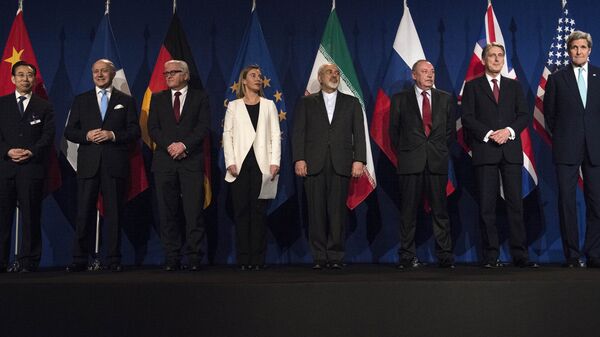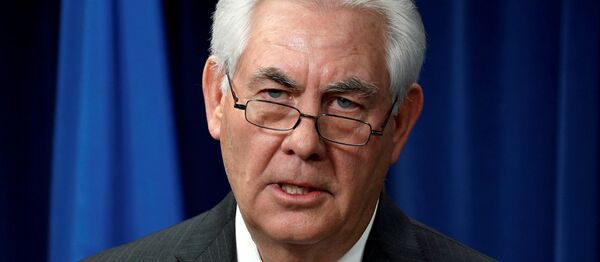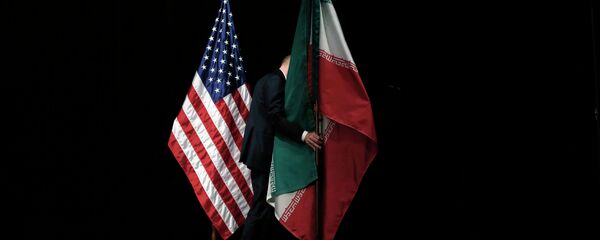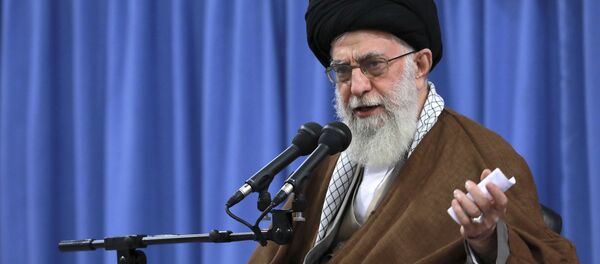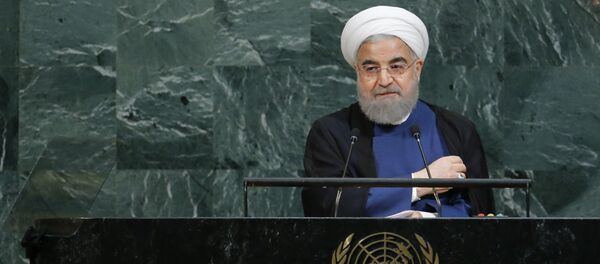MOSCOW (Sputnik) – Washington’s possible withdrawal from the Joint Comprehensive Plan of Action (JCPOA), the international agreement providing for the gradual lifting of economic and diplomatic sanctions imposed on Iran by the Western countries in exchange for closing of the nuclear program by Tehran, would affect international nuclear non-proliferation policies, experts told Sputnik.
US President Donald Trump has repeatedly expressed opposition to the deal, which was negotiated by his predecessor Barack Obama. In the most recent case, during his speech at the UN general Assembly Session on Tuesday, the US president slammed the JCPOA once again, calling it one of the worst deals Washington had ever signed, adding that Iran had been pursuing a policy which was destructive and undermining peace.
No Indications of JCPOA Breach by Iran
Gotz Neuneck, a professor of Physics and acting co-director of the Institute of Peace Research and Security Policy at the University of Hamburg (IFSH), told Sputnik that the nuclear agreement with Iran was endangered by Trump who had repeatedly accused Iran of breaching the deal without providing any evidence.
"The nuclear agreement with Iran is endangered by a US president who claimed that this treaty is 'one of the worst and one-sided transactions the US has ever entered into' without giving any fact or proof that Iran is non-compliant. Until now there are no indications that Iran is in 'material breach' with the treaty. If President Trump wants to destroy the agreement, then he might create another North Korea in the long-term!" Neuneck pointed out.
Trump should either provide reasons supporting the need for a revised deal or "take responsibility that the other treaty parties continue to support a very effective and useful agreement without the US," the expert suggested.
"The European countries, France, the United Kingdom and Germany but also Russia must try to convince Trump, that the Iran agreement works efficiently and is in the interest of the international non-proliferation policy. It mandated unprecedented verification and monitoring measures and reduces the risk of an arms race in the Middle East," Neuneck pointed out.
Neuneck called on the United States to "come back to a world which relies on agreements, diplomacy cooperation and the rule of law."
Gary Samore, the executive director for research at the Belfer Center for Science and International Affairs of Harvard University's Kennedy School of Government, told Sputnik that Trump's words would not result in significant consequences.
"President Trump’s statements are of little consequence. What matters is whether President Trump takes actions to withdraw the United States from the nuclear agreement with Iran, which could cause the agreement to collapse and harm non-proliferation efforts in the Middle East," Samore pointed out.
"Any attempt to terminate the JCPOA can only be counter-productive and encourage Iran to go back on its commitment not to develop nuclear weapons," Finaud told Sputnik.
The expert continued by saying that the EU members states had initiated the negotiation with Iran back in 2003 and had contributed to its success jointly with China, Russia and the United States.
"They want to preserve this achievement as a guarantee of stability in the Middle East, which also offers many prospects of mutual economic benefits. The French President [Emmanuel Macron] and other European leaders raised this issue with President Trump. We can only hope that their voices will be heard," Finaud noted.
"For example, it will tell the North Koreans they could never trust an agreement with the US," the expert explained.
Carlson noted that the Iranian nuclear deal was aimed at resolving the immediate tensions around Tehran’s nuclear program and provided an opportunity for the agreement’s parties to develop cooperation and trust, but was not designed as a long-term solution for the existing issues.
"If the US does abandon the JCPOA it is essential for the other parties – Russia, China, the EU – to maintain their side of the deal, so when the Trump presidency ends the US can reconsider its position. I would advise Iran and the other parties to preserve the JCPOA without the US, if necessary, and to commence discussions on the post-JCPOA future, so the next US president will see the benefit in re-engaging," the expert added.
Possible JCPOA Revision
Finaud noted that the Iran deal contained provisions for addressing doubts and suspicions of non-compliance.
"It was not intended to include any other aspects of Iran’s policy such as ballistic missiles, support to Hezbollah and the [President Bashar] Assad regime in Syria or the rebels in Yemen. Those issues should be discussed in the relevant frameworks and lead to a more cooperative behavior of Tehran," the expert suggested.
Professor Shen Dingli, the associate dean at the Chinese Institute of International Studies and director of the Program on Arms Control and Regional Security Studies at Fudan University, also called the JCPOA a "compromise."
"By allowing Iran to keep uranium enrichment, even to a limited degree, opens the door of nuclear weapons for Iran. Therefore, if it is possible to revise the deal to totally close that door, it will be great," the expert told Sputnik.
If such a revision attempt were to fail and lead to the collapse of the existing deal, it should be avoided, Shen pointed out.

